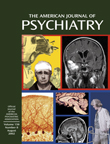Double-Blind, Placebo-Controlled Study of Risperidone for the Treatment of Disruptive Behaviors in Children With Subaverage Intelligence
Abstract
OBJECTIVE: The short-term efficacy and safety of risperidone in the treatment of disruptive behaviors was examined in a well-characterized cohort of children with subaverage intelligence. METHOD: In this 6-week, multicenter, double-blind, parallel-group study of 118 children (aged 5–12 years) with severely disruptive behaviors and subaverage intelligence (IQ between 36 and 84, inclusive), the subjects received 0.02–0.06 mg/kg per day of risperidone oral solution or placebo. The a priori primary efficacy measure was the change in score from baseline to endpoint on the conduct problem subscale of the Nisonger Child Behavior Rating Form. RESULTS: The risperidone group showed significantly greater improvement than did the placebo group on the conduct problem subscale of the Nisonger Child Behavior Rating Form from week 1 through endpoint (change in score of –15.2 and –6.2, respectively). Risperidone was also associated with significantly greater improvement than placebo on all other Nisonger Child Behavior Rating Form subscales at endpoint, as well as on the Aberrant Behavior Checklist subscales for irritability, lethargy/social withdrawal, and hyperactivity; the Behavior Problems Inventory aggressive/destructive behavior subscale; a visual analogue scale of the most troublesome symptom; and the Clinical Global Impression change score. The most common adverse effects reported during risperidone treatment were headache and somnolence. The extrapyramidal symptom profile of risperidone was comparable to that of placebo. Mean weight increases of 2.2 kg. and 0.9 kg occurred in the risperidone and placebo groups, respectively. CONCLUSIONS: Risperidone was effective and well tolerated for the treatment of severely disruptive behaviors in children with subaverage IQ.



